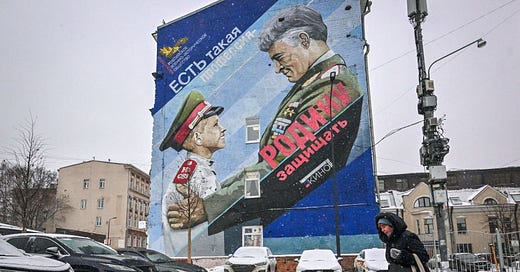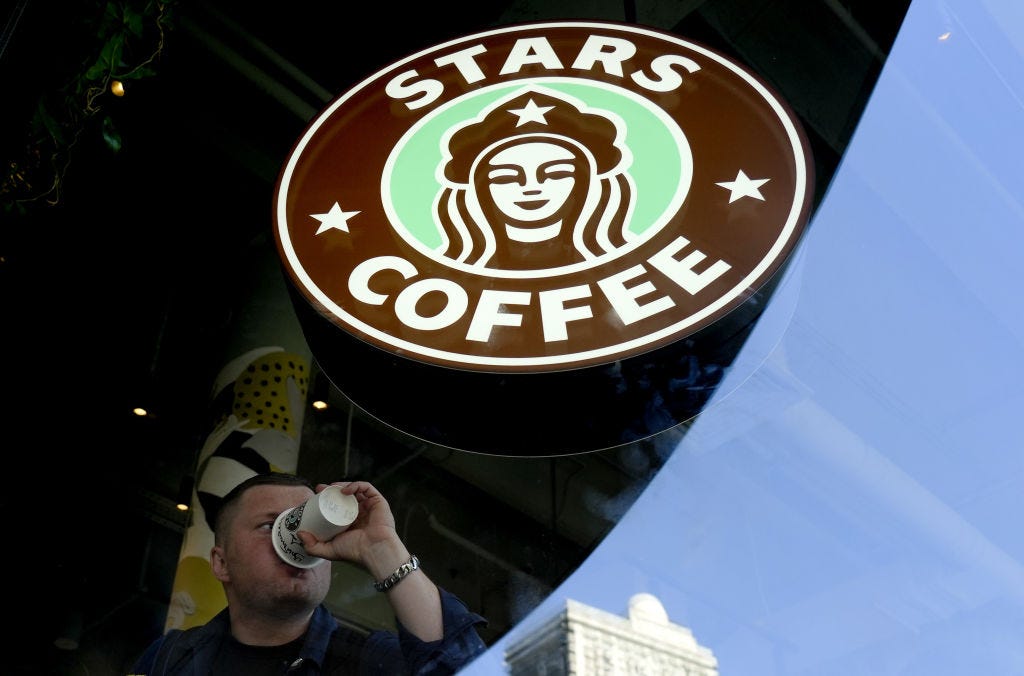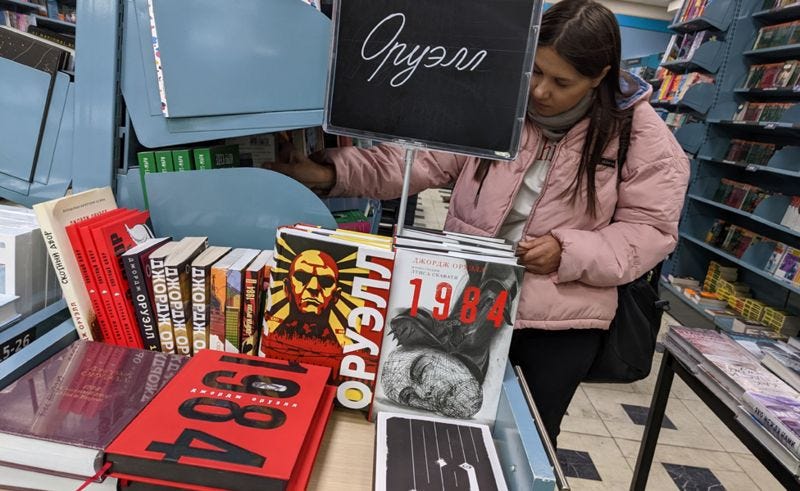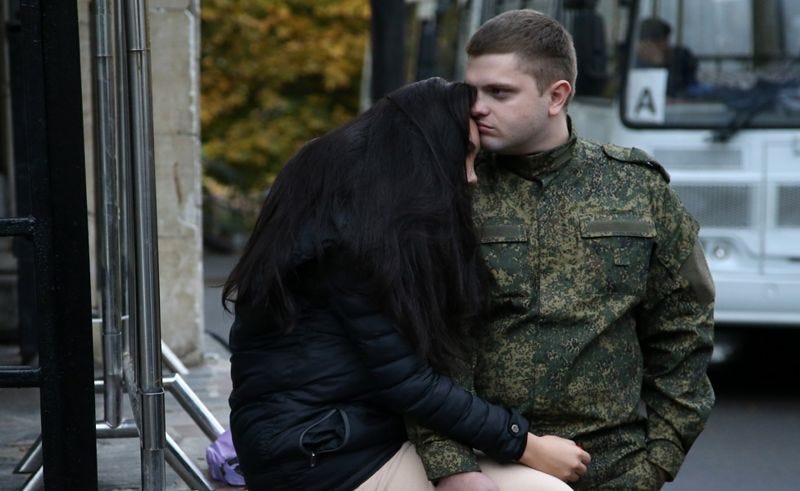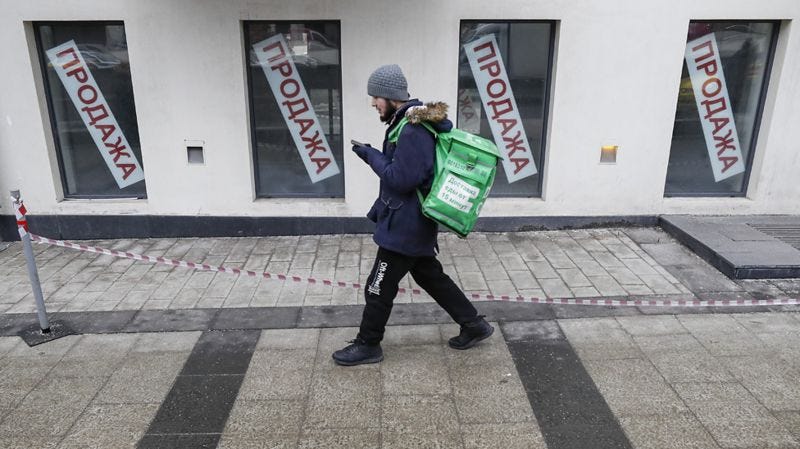DIARY: Moscow - the city where the war isn't happening
One year on from the war in Ukraine, BBC Russian's occasional diarist takes a walk around the Russian capital to see how life has changed.
Imagine someone who doesn't watch Russian TV and doesn’t follow the news on either Telegram or YouTube. If that person was to walk the streets of Moscow today, it’s quite possible that they wouldn’t realise this was the capital of a country that has spent the past year waging a bloody war against one of its closest neighbours.
They would notice perhaps that there are billboards here and there showing men clad in pristine military uniform. But what exactly these soldiers did to merit being put on display is not clear at all.
This does not mean that life in Moscow and the things the capital’s residents are talking about have not changed. They have. But in a city inhabited by at least 10% of Russia’s population the words ‘Ukraine’, ‘war’ or even ‘special military operation’ seem to have dropped from Moscow’s vocabulary.
On the Novy Arbat shopping street, UniQlo’s red logo is still shining. But the shop windows are dirty and the mannequins are wearing dusty jeans and sweatshirts from last year’s collection before the war.
Why are so many western-brand shops in Moscow now closed? For ‘technical reasons’ is the standard explanation.
Some businesses have been taken over by new Russian owners and rebranded.
On the Old Arbat street Starbucks has become Stars Coffee. The Seattle mermaid on the old logo is now sporting a traditional Russian head-dress. Inside - nothing betrays the previous owners and yet everything hints at it. But, the biggest change is that last year this central Moscow cafe would have been buzzing with customers, and now it’s almost empty.
It’s the same story all across the city. There are are very few people in places which used to be crowded.
Of course Moscow is far from deserted. Drivers still get frustrated by evening traffic jams, and there is still not much chance of finding a seat in the metro in rush-hour. But it seems that something or someone that created Moscow’s former buzz and life is gone.
Commentators keep counting the numbers of those who have left Russia since the start of the war - half a million, a whole million? How many of them were from Moscow and how many did the city have to lose to be changed?
On the Old Arbat, there’s a street exhibition telling the story of an infamous episode from Russia’s post-revolutionary past. In 1922 some of the country’s best thinkers, scientists and cultural figures were sent into exile abroad on a steamboat later dubbed the ‘Philosophers’ ship’.
The exhibition notes that many of those on board went on to achieve great things, but ‘alas’ not in Russia. It’s hard to escape the parallels with Russia today and to wonder if that thought had also struck the exhibition organisers.
Food for body and mind
Away from the city centre people seem to walk faster, and with more deliberation.
The noisy and not very sober men who used to congregate outside my local supermarket have disappeared.
Inside the shop I am trying to understand what it is that pushes my expenses up. After the hysterical spike in prices in March 2022 and the subsequent drop in prices this summer, none of the items on my short shopping list seem to have become substantially more expensive. And yet every time it feels as if I’m paying out more and more.
In the bookshops, work by ‘foreign agents’ and other undesirables is still available. Assistants in Moscow’s biggest book store on Novy Arbat won’t go into details of what the general policy on such authors is. But if you ask for Boris Akunin, a famous writer and a vocal critic of Vladimir Putin’s rule, you will be directed to the shelves where his books are still in stock. The same goes for Lyudmila Ulitskaya, another popular, and liberal Russian writer.
A whole table is set aside for George Orwell’s ‘1984’ - this despite the fact that the book had been confiscated at several protests against the Russian war.
In other places throughout the store, there’s a mish-mash of conspiracy-peddling anti-Western revelations and liberal political research by authors who have now left Russia. Recent new laws cracking down on LGBT issues are reflected on the shelves with the same inconsistency: Michael Cunningham’s ‘A Home at the End of the World’ is available, Hanya Yanagihara’s ‘Little Life’ is not.
A local car parts shop used to sell derogatory anti-Western stickers for rear windows. Those are gone. No more half-literate ’Fuck of NATO’ or ‘We can do it again’ (meaning Russia’s 1945 victory over Nazi Germany). But also no ‘Z’ stickers - the symbol of the Russian invasion of Ukraine. In Moscow there were never many cars with the Z symbol, and these days there are none at all.
Talking and not talking
In the week after the invasion of Ukraine last year, it felt as if everyone in Moscow was talking about the war.
Half a year later everyone was talking mobilisation and how to avoid it.
‘How far away is Bishkek?’ Are THEIR kids going to be mobilised too? ‘What specialisation does he have? Driver? No chance.’
In December the authorities said the partial mobilisation campaign was complete, but the talk continues. A few days ago near a metro station I heard a young man in Moscow metro uniform telling someone that he knows three people who have been sent to the front since December.
I know one woman, who is cautious and careful with words. She doesn’t support the war but hasn’t said much against it either. In fact, she never protested - when it was still possible and even permitted.
Last spring, when the talk of collective responsibility and collective guilt started picking up among some Russians, I asked her whether she accepted any part of responsibility in what our country had done. “Why do we all have to be guilty?” she responded. “We have no say in this.”
In October, two weeks after Vladimir Putin announced mobilisation, she wrote to say how lucky she was to obtain a plane ticket from Moscow to Tbilisi, in Georgia, for her 22-year-old son, a programmer. He now lives in Georgia, still working for his Moscow firm. He’d like to move to Portugal. His mother has applied for a Russian international passport, the first in her life so she can go and visit him.
I asked again whether anything has changed on responsibility/guilt front.
“I don’t feel that I am to blame,” she said. “This is beyond me. I feel deceived, ruled by fear, too sensitive and powerless. I regret that I can’t do anything about the war. Powerless, because my words and my opinion will not change anything, but can harm me.”
Mobilisation: join up or dodge the draft?
Andrei is a neighbour of mine in a small village where I have a ‘dacha’, a second home.
A week after mobilisation started, I asked whether his 40-year-old son was at risk. If he was, Andrei was not too worried.
“He’ll go if he’s called up,” he said. “In fact, I would go myself and ask my Ukrainian relatives why they’re marching under Nazi flags!” He’s obviously not talking to his relatives in Ukraine on the phone. I wasn’t very surprised; I knew of his anti-Ukraine views in 2014 when Russia invaded Donbass. But I had to ask about the ‘Nazi flags’.
We didn’t get very far - him swearing and repeating that it’s not only Russian TV he listens to, but ‘to people on the internet’. Me asking whether he can trust the story the authorities are giving after being lied to by the same authorities over the years in things large and small.
We parted ways. I thought it would be hard for us to talk again. But the next day we had to discuss the issue of potholes in the road and by the eager way Andrei engaged me in conversation, I understood that he didn’t want our opposing views on the war to come between us.
Maria another neighbour in her mid-thirties, has decided to downshift and stay in the countryside permanently. Her husband works in Moscow and visits her on weekends. I asked her about mobilisation. She said that the family had decided that her husband would go to war if he was called up.
“Dodging it would mean a criminal charge, joining up - well, at least we’ll be paid,” she said. I asked whether the moral side of the matter was considered. She looked away, said it wasn’t.
An acquaintance in Moscow has a cousin who was drafted. He hasn’t been sent to front yet, in fact was even allowed a weekend home, away from the training base. His mother said he looked plumper now. All the family is hoping for - is that he won’t be sent to the frontline.
We stopped talking about the war after I mentioned the corpses in Bucha, near Kiev, and she hastened to tell me that it’s been proven to be a fake staged by the Ukrainian side.
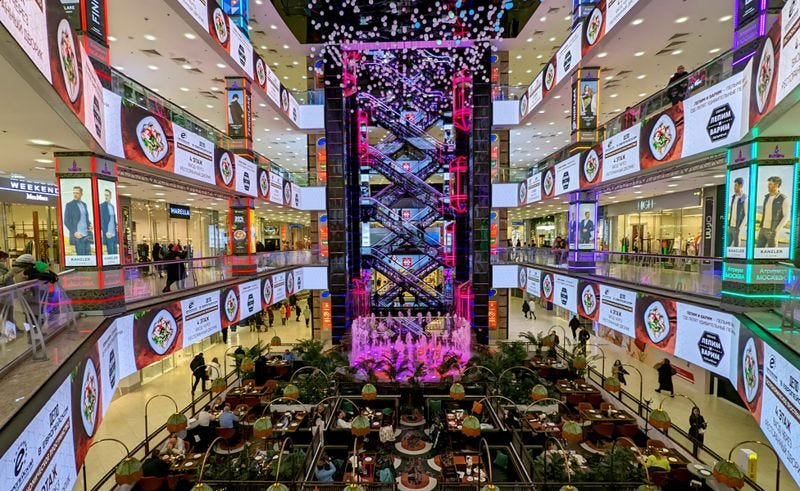
Recently, getting off a train in a small town at dawn I had to share a ride with a talkative pensioner. He asked the driver whether a lot of people have been drafted.
“Quite a few,” said the driver. “I hope no-one’s been killed,” said the pensioner. “They bring some back,” replied the driver laconically.
The pensioner sighed, said what a sorrow that was. I was expecting him to elaborate on what and who caused the sorrow, but instead he started talking about 2014 and how Putin shouldn’t have ‘stopped the DNR and LNR (the two Ukrainian regions now annexed by Russia) from marching onto Kiev’. Clearly, another war supporter.
Not everyone I meet is like that. I know a woman who has a daughter in the fourth grade.
She’s adamant the girl won’t be attending the special Monday patriotic lessons called ’Talks on What Matters’, introduced after the invasion. She was at pains to invent some reasons to cover her child’s absence, then, by chance, discovered that most of the kids in the class are not attending. The headteacher doesn’t mind and the search for excuses ended.
Flowers by the statue
A real, if not that noticeable, protest against the war did happen a few weeks ago, after a Russian rocket obliterated dozens of flats in a residential block in the Ukrainian city of Dnipro.
People in different Russian towns brought flowers and pictures of the destroyed buildings to landmarks somehow connected to Ukraine.
In Moscow it happened near a statue commemorating Lesya Ukrainka, a famous Ukrainian writer. The action was short-lived but even a small bunch of flowers and mentioning them on social media caused police to establish a temporary post there, threatening removal or arrest for anyone who stopped by.
By mid-February there were no signs of police or any commemoration. The boulevard in the western part of the centre where the statue stands was empty.
The area used to be more lively before the war, thanks to the giant ‘European’ shopping centre. Its various wings and floors are still called by the names of various European capitals, the same ones the Kremlin now treats as enemies.
But the shoppers are gone, the glitzy hallways are nearly deserted and the shops which are still open often have more sales assistants than customers. They tell me I’ve just picked a wrong evening for visit, but in another mall across the city centre the picture was pretty much the same.

The emptiness is even more prominent at one of Moscow’s foremost culture spaces, the Tretyakov gallery. One of its larger halls, on the banks of Moscow river, usually stages blockbuster art exhibitions.
Right now it’s been given over to an exhibition devoted to the history of the Grand Duchy of Vladimir. Everything - from massive oak church doors to icons, recordings of hymns and casts of religious architecture is grand. But - not grand enough for the hall, the displays looked too small for the amount of the space they were given.
In the cloakroom in the lobby there are just a couple of dozen lonely coats hanging in a space that could accomodate more than a thousand.
Muscovites are simply not coming. This maybe down to the subject, this may be because of the times, but it underlines that life in the city is not going on as usual.
Across the Garden Ring lies another Moscow landmark, Gorky Park. And there, for once, the war theme is apparent.
Massive Z and V letters, the symbols that define Russian troops and vehicles on Ukraine’s battlefields, are standing in a blaze of white neon. A giant Christmas bauble in the colours of the Russian flag is standing in front of them.
Nearby - a model of pastoral snowy village, whose houses have lights but no people.
The entrance to the park is deserted. Finally, a woman appears, carrying a bunch of flowers. She drops the bouquet and the guard by the entrance is briefly alarmed - could this be another protest?
But the woman picks up the flowers and walks away. And the park’s forecourt becomes empty again.
Read this story in Russian here.

